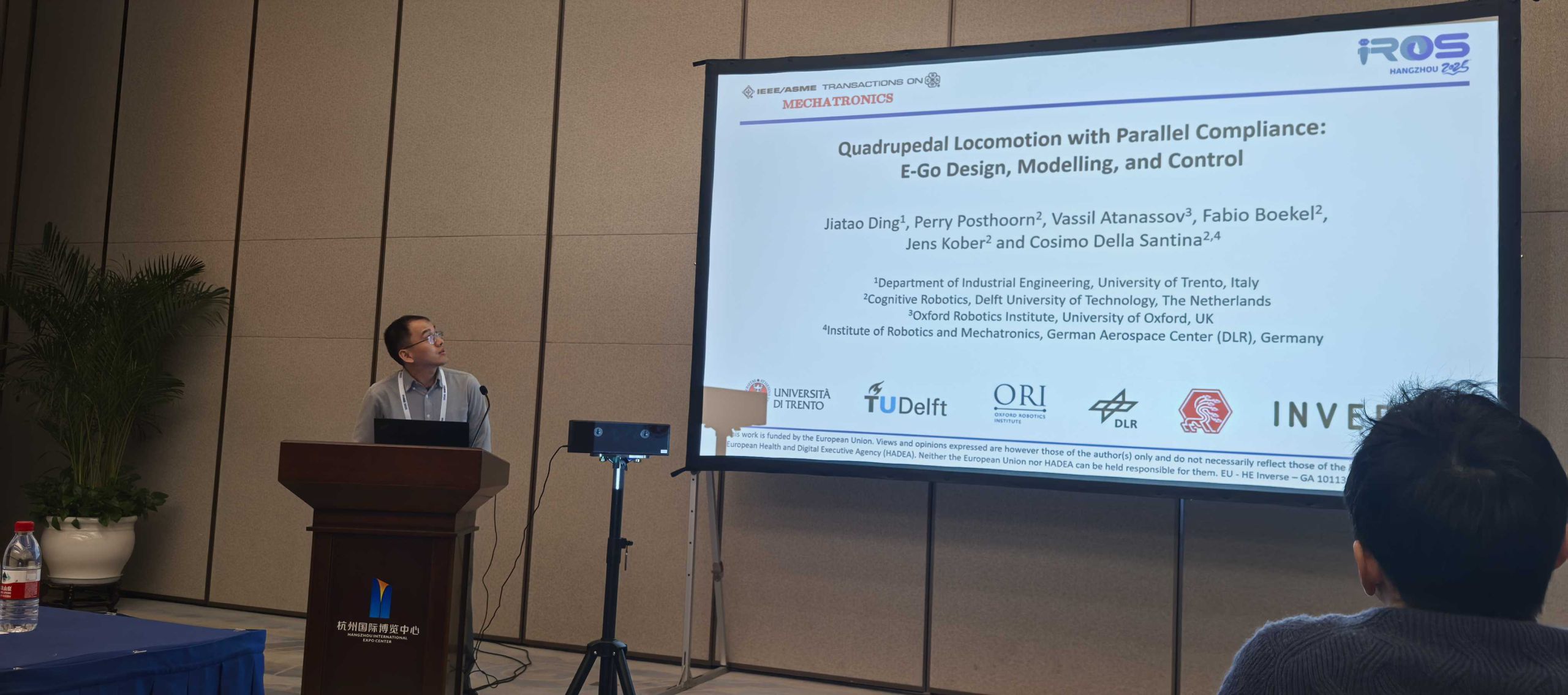Multiple INVERSE partners were invited to talk or present their papers at the International Conference on Intelligent Robots and Systems – IEEE IROS 2025 which took place from 20.-24. October in Hangzhou, China. IROS 2025 brought together over 8,000 robotics experts and enthusiasts worldwide for keynote speeches, technical sessions, and dynamic networking opportunities.
INVERSE Partners Presented their newest research
From University of Trento, Matteo Saveriano was invited to talk at the workshop “Exploring the Role of Energy in Robot Learning and Control”. Also from University of Trento, Jiatao Ding, presented the papers “Explosive Jumping with Rigid and Articulated Soft Quadrupeds via Example Guided Reinforcement Learning” and “Quadrupedal Locomotion with Parallel Compliance: E-Go Design, Modelling, and Control “.
From DLR, Joao Silverio, presented the IEEE RA-L papers “Interactive incremental learning of generalizable skills with local trajectory modulation” and “Towards safe and efficient learning in the wild: guiding RL with constrained uncertainty-aware movement primitives”.
“From Passive Learner to Pro-Active and Inter-Active Learner with Reasoning Capabilities”
Dongheui Lee from TU Wien gave the keynote speech “From Passive Learner to Pro-Active and Inter-Active Learner with Reasoning Capabilities” at the conference. In her talk she gave insights into autonomous motor skill learning and control as central challenges in the development of intelligent robotic systems.
Imitation learning offers an efficient approach, enabling robots to acquire new skills from human guidance while reducing the time and cost of manual programming. Traditional approaches to robot learning from demonstration tend to render the robot a passive learner, confined largely to motion planning derived from the current observations. To progress beyond the traditional paradigm of imitation learning, it is essential to develop methods that allow robots to continuously learn new skills and to refine previously learned ones, if necessary, particularly in uncertain or dynamic environments. This may require the ability to reason about the robot’s own actions, or to extend its knowledge through proactive and interactive engagement with humans.
Congratulations to the INVERSE partners for their visibility and presentations at this prestigious conference!

